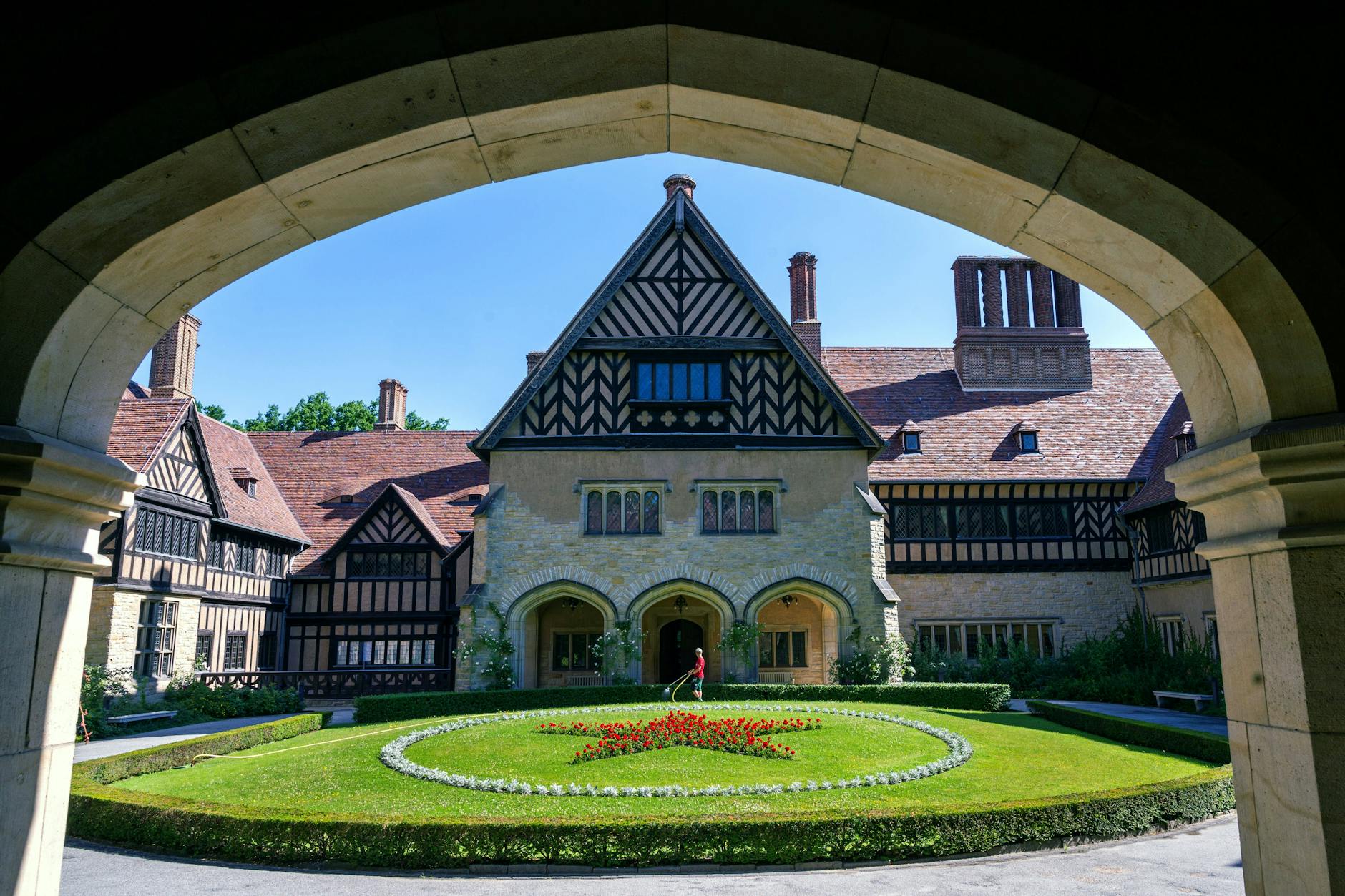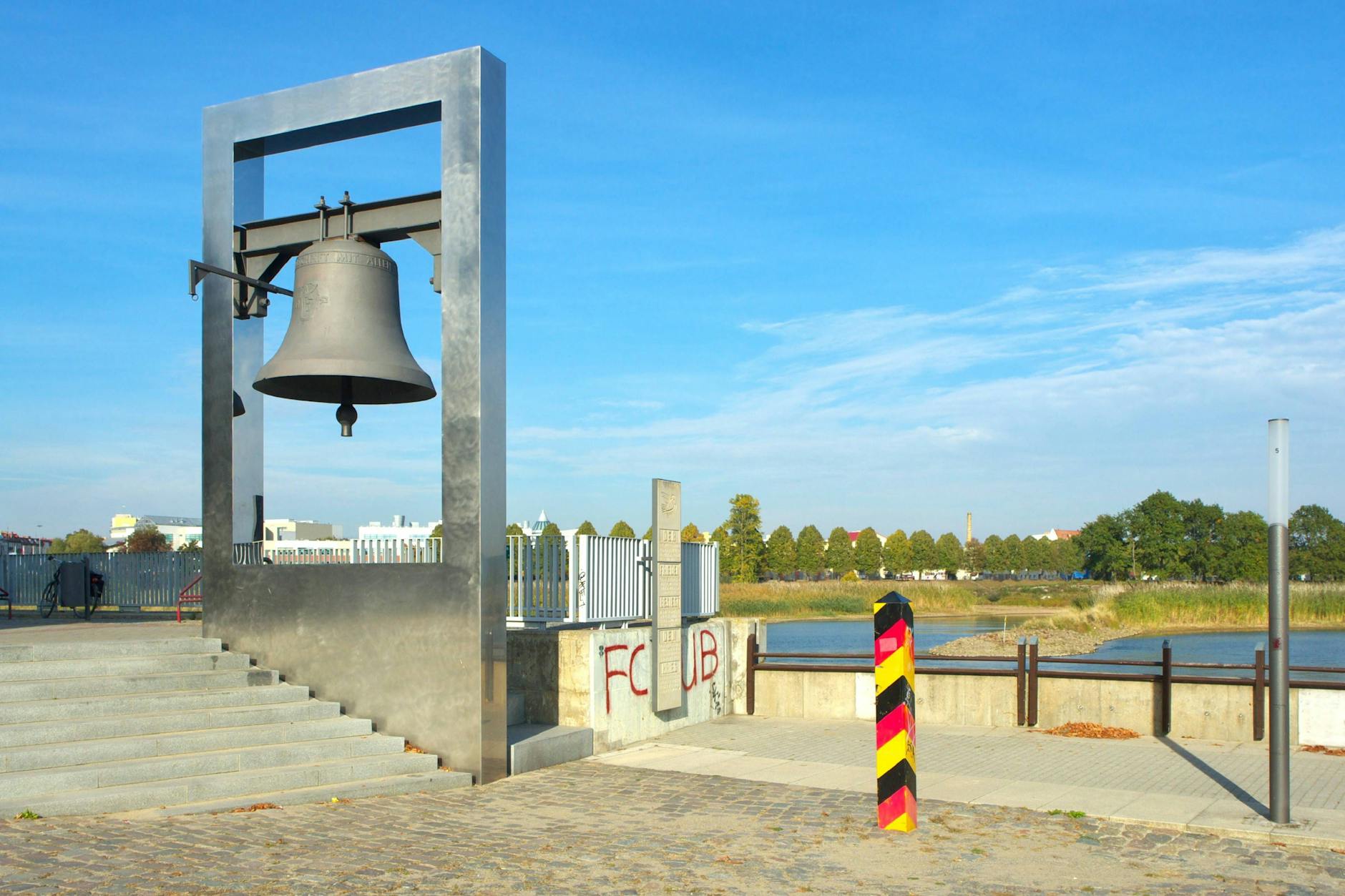80 Years of the Potsdam Conference: Revenge or Mercy? The Big Three and Germany's Fate

Six weeks after the surrender of Hitler's Germany, the victors met to reorder the world . The war was not yet over; hundreds of thousands of soldiers were still fighting in the Far East. Japan , recently an ally of Nazi Germany, was bracing itself against inevitable defeat. The Potsdam Conference began on July 17, 1954, and ended on August 2 with the announcement of the Potsdam Agreement.
The Berliner Zeitung newspaper reprinted the eagerly awaited document verbatim on three pages on August 4. Thus, Berliners learned what lay ahead for them, what lay ahead for the Germans. They no longer had a say. The subheading captured the essence: "The German people are given the opportunity to restore their lives on a democratic and peaceful basis."
They and the global public initially remained unaware of a news item that would catapult the world into a new era: On July 25, US President Harry Truman had given the order from Potsdam for the first use of an atomic bomb. It was to be dropped on the Japanese city of Hiroshima from an American bomber four days after the conference ended. The origin of the order from Potsdam will be described shortly in a continuation of this article.
Atmosphere in the FührerbunkerTruman, Soviet leader Joseph Stalin , and British Prime Minister Winston Churchill met in the Soviet occupation zone. Host Stalin had converted the undamaged Hohenzollern country estate, Cecilienhof Palace in Potsdam, which had been used temporarily as a military hospital, into a meeting venue and—as Truman well noticed—had the striking flowerbed in the shape of the Soviet star, planted with red geraniums, hydrangeas, and roses, in the courtyard. The three heads of delegation resided close to each other in villas in Neubabelsberg, about five kilometers away. The gentlemen and their staffs were to be in a quiet and comfortable environment, with plenty of greenery.
Truman visited the ruins of Berlin the morning after his arrival on July 15. He had traveled by warship to Antwerp, then by plane to Berlin-Gatow. In his memoirs, he specifically mentions "the famous Autobahn" along which his motorcade rolled into the Reich capital, to the ruins of Hitler's Reich Chancellery .
In his memoirs, he summarized: “I have never seen such destruction again.” – “This is what had to happen when a person has no sense of proportion.” He saw the ruins of the Reichstag and “other sites famous before the war,” which had now become a “heap of rubble and rock.”

The day before, Churchill had walked through the destroyed halls and corridors of the Reich Chancellery and had been escorted by his Russian companions to the Führerbunker . He went down to the lowest floor, to the room in which Hitler had taken his own life, and in front of the bunker he had the spot where his body had been burned shown to him: "So I received on the spot the best account of the last part of the tragedy available at the time," he noted in his memoirs and added, released from all tension, that his hatred had evaporated since Germany had given up the fight.
In this spirit, they met for the first round of conferences on the evening of July 17. Stalin asked Truman to chair the meeting, and Churchill agreed. Shortly before his arrival, the 61-year-old US Democrat had written to his mother and sister that this trip was "very repugnant" to him, but unfortunately unavoidable. After the first session, which initially focused on agreeing on the topics to be discussed, he noted: "I was in Potsdam to achieve something. If that proved impossible, I intended to go home."
In Potsdam, the "Big Three" gave each other nothing, but the tone remained polite. Truman fulfilled his duty in Potsdam. However, Stalin had the advantage – not because the conference was taking place in the Soviet occupation zone, but because the 67-year-old Soviet leader had already ruled a difficult country since 1927 and had already helped shape the precursor conferences in Tehran in 1943 and Yalta (February 1945). Truman had only been in office since mid-April 1945. The shrewd British Prime Minister Winston Churchill lost his office in the middle of the conference following a general election; the far less experienced Labour politician Clement Attlee took over.
Thomas Mann, in exile in California, followed the news from Germany with a delay and great anticipation. The first diary entry, dated July 21, sounds disappointed: "Very funny report from Potsdam about Truman playing the piano for Stalin and Churchill." The brief scene of the attempt to establish personal relationships also appears in Truman's memoirs. Truman, an enthusiastic amateur musician, notes that Churchill did listen to him, but "he didn't particularly appreciate music—at least not the kind I loved."
The Berliner Zeitung, published for six weeks now, contains no significant reports on the proceedings of the conference, at most a reprint of a Pravda editorial outlining the Soviet position. Were the Berlin journalists incompetent, or were they under Russian censorship? The solution to this mystery can be found in Truman as well as in Churchill.
Reparations and “the Polish question”By the second day of the conference, the latter was already concerned with how to deal with the "180 agitated journalists" who were lingering outside the conference grounds and "complaining horribly in the world press that they were being denied every piece of information." To smooth their "ruffled feathers," Churchill offered to explain to the pests that the conference wanted to work in peace. Stalin rejected all of this. Truman believed that was a matter for the press staff. Churchill complied, but considered the decision wrong.
The negotiations in Potsdam encompassed a vast, global array of issues. They ranged from Italy to Greece and Romania to Franco's Spain, from the colonies to food security to the division of the German fleet, denazification, and the re-education of Germans. Unsurprisingly, the hottest topics turned out to be the Soviet demands for reparations and the "Polish Question."
The course of the Soviet western border had already been clarified in Yalta and roughly corresponds to the current borders of Poland with Lithuania, Belarus, and Ukraine. The question of how large the former German territories should be allocated as compensation for the eastern territories of Poland that had fallen to the Soviet Union led to a heated dispute between the three heads of state.
Stalin insisted on awarding the area around Danzig to Poland and placing Poland's western border on the Oder-Neisse line, not the eastern (Kladz) Neisse, but the western one. In between lay an area that had previously been predominantly populated by Germans. The westward shift of Poland created a new homeland for approximately four million Poles, who were then resettled from the former Polish eastern territories.
However, Churchill was concerned about what would happen to the eight million Germans who would have to make way for the new Polish arrivals, and he raised relevant questions: Could the rump of Germany accommodate so many refugees? How would the people be fed, especially since the most important agricultural surplus areas were located in the parts of the country that Germans were to vacate? Who would cultivate the land?
Soviet Union covers Polish claimsStalin remained adamant: The occupied former East German territories were "inhabited and cultivated by Poles." He spoke similarly regarding the Silesian coal mines: The former owners had fled, and Poles were mining the coal. Truman, too, resisted the idea of gigantic "dislocations."
However, he considered it an already irrefutable fact that East Germany had to be ceded to Poland and simply insisted on leaving the final border demarcation to a peace treaty. This was not achieved until 1990, as part of the so-called Two Plus Four Treaty, concluded between the four Allies, the Federal Republic of Germany, and the German Democratic Republic. The Oder-Neisse line remained, even though Chancellor Helmut Kohl strongly opposed it.

The issue of reparations continues to resonate in East-West debates to this day. The Potsdam Documents reveal that it was closely linked to the division of the occupation zones. The Potsdam Agreement, which was finally signed, regulates reparations according to the principle that each occupying power will cover its respective reparations claims from its zone. The amount remained open.
The Soviet Union, which had suffered by far the greatest damage from Germany's war of plunder and annihilation, took the greatest advantage and also received shares of German foreign assets. In addition, it was to be entitled to payments from the western zones, for example, 15 percent of usable equipment in the metal and chemical industries, as well as in mechanical engineering—but in exchange for food, coal, potash, zinc, timber, and other raw materials, and with the interpretable addition: insofar as dispensable for German peacetime production. The following provision is also particularly interesting for today's debates: "The USSR will satisfy Poland's reparations claims from its own share of the reparations."
Thomas Mann: “A shocking plan”When Thomas Mann read the results of the conference, he lost interest in joking about piano performances. On August 3, he wrote: "The Potsdam Document is in print. Shocked, despite everything, by the decrees concerning Germany. The senseless enlargement of Poland as far as the Oder. The mass relocations into the narrowed country, in an orderly and decent manner. The reduction to an agrarian status (with the separation of the main agricultural areas) with some harmless industry for domestic use. Probably intended to reduce the population to 40 or so million." He found the plan "shocking." Two weeks later, Thomas Mann still noted: "Depressed by the Potsdam resolutions."
Rudolf Herrnstadt, editor-in-chief of the Berliner Zeitung , took a completely different view in his editorial of August 4. He wrote unequivocally: "The territorial changes in the East cannot be understood without recognizing the complicity of the entire German people." The Germans had known about Hitler's atrocities, and in 1936, 1937, and 1938, a murmur ran through all levels of the German people: "If only this works out!" – It couldn't work out!
And further: "It grew into the slaughter of entire peoples." These people now demanded "as a minimal and inadequate safeguard against (...) that German imperialism, marching from Königsberg and Breslau, would not one day plant the next perfected battery of crematoria between their villages." Herrnstadt recognized in the Potsdam agreements "the outline of the Germany of tomorrow" and called for a move toward a better future: "Now it is up to us to create it."
Berliner-zeitung


